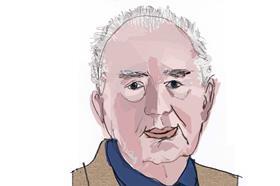It has unkindly been said that the one-time English convict William F. Howe, who became the top criminal lawyer in New York in the late 19th century, knew little law and achieved success by a mixture of bluster and bribery. This is only partially true. One reason for his success is that Howe paid rather more attention to detail than his contemporaries.

His cases started being reported regularly in 1861 and it is clear he had a good command of the law. The points raised may have seemed to be pettifogging but they got clients back on the streets, which is what any young lawyer wants. An arrest without a warrant; a charge of theft brought in the wrong court – Howe was there to ensure, if not justice, at least the rule of law prevailed.
In 1870 one indictment read that a Lawrence Dempsey was accused of stealing a ‘draw’. Howe marched into court armed with Webster’s Unabridged to tell Judge Dowling that he was ‘far too good a judge of orthography’ to permit such a complaint; Dempsey should have been charged with stealing a drawer. And although the actual facts were wholly against Dempsey, as Dowling said to Howe: ‘Between yourself and the police clerk, the complaint is not worth the paper it is written on and it is a great shame I must discharge.’
When in 1874 Howe was acting on behalf of Owen Reilly, a professional arsonist – conviction for which carried life imprisonment – he persuaded the man to plead guilty to an attempt, which carried half the penalty. The prosecutor and the judge agreed and Howe then produced the argument that there was no penalty which could be imposed. Howe was always keen on a few biblical quotations or religious thoughts and on this occasion his plea was no exception: ‘Scripture tells us that we knoweth not the day nor the hour of our departure. Can this court sentence the prisoner at the bar to half of his natural life? Will it then sentence him to half a minute, or half the days of Methuselah?’
Reilly went free but the law was quickly changed.
James Morton is a writer and former criminal defence solicitor































1 Reader's comment